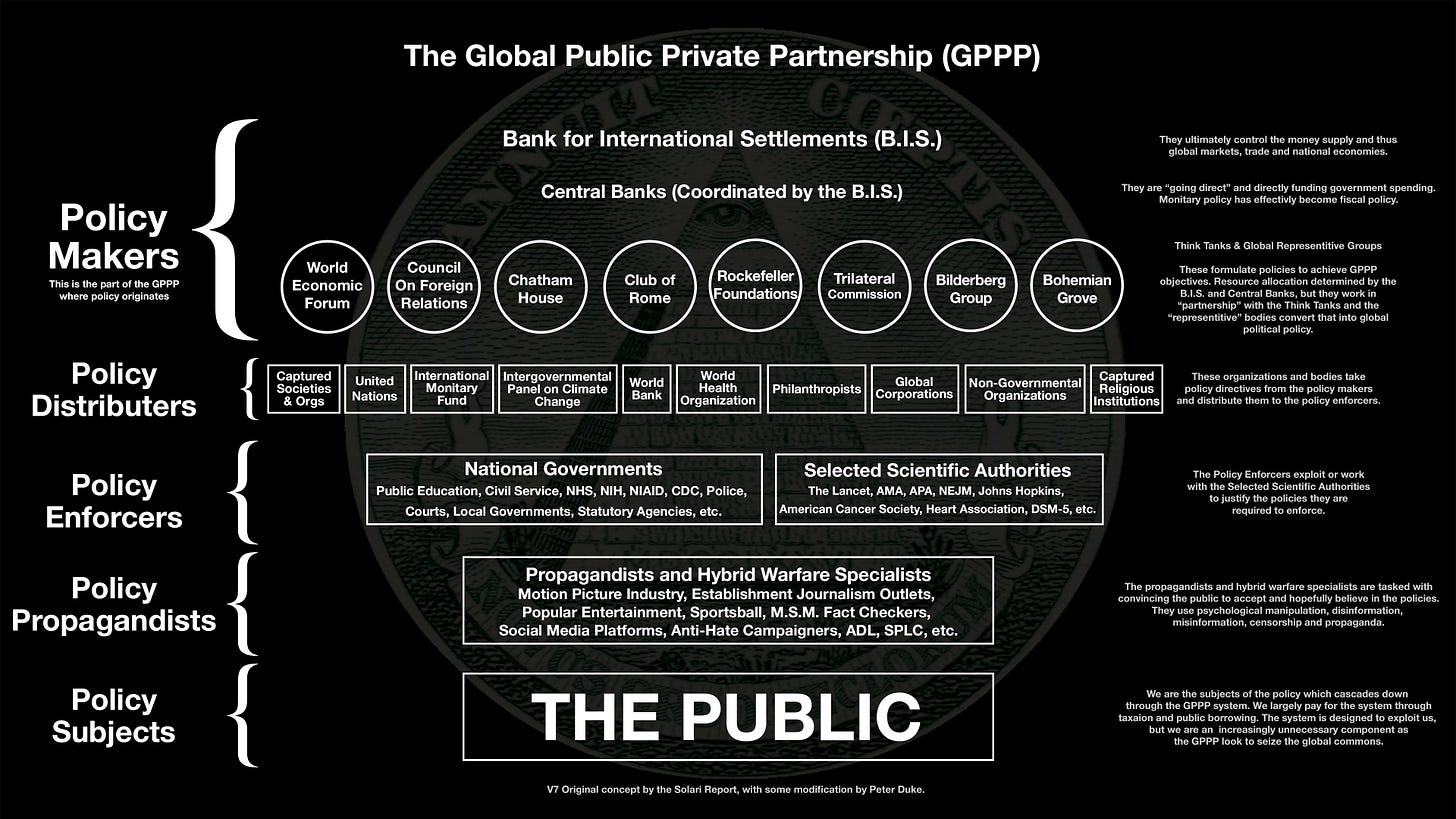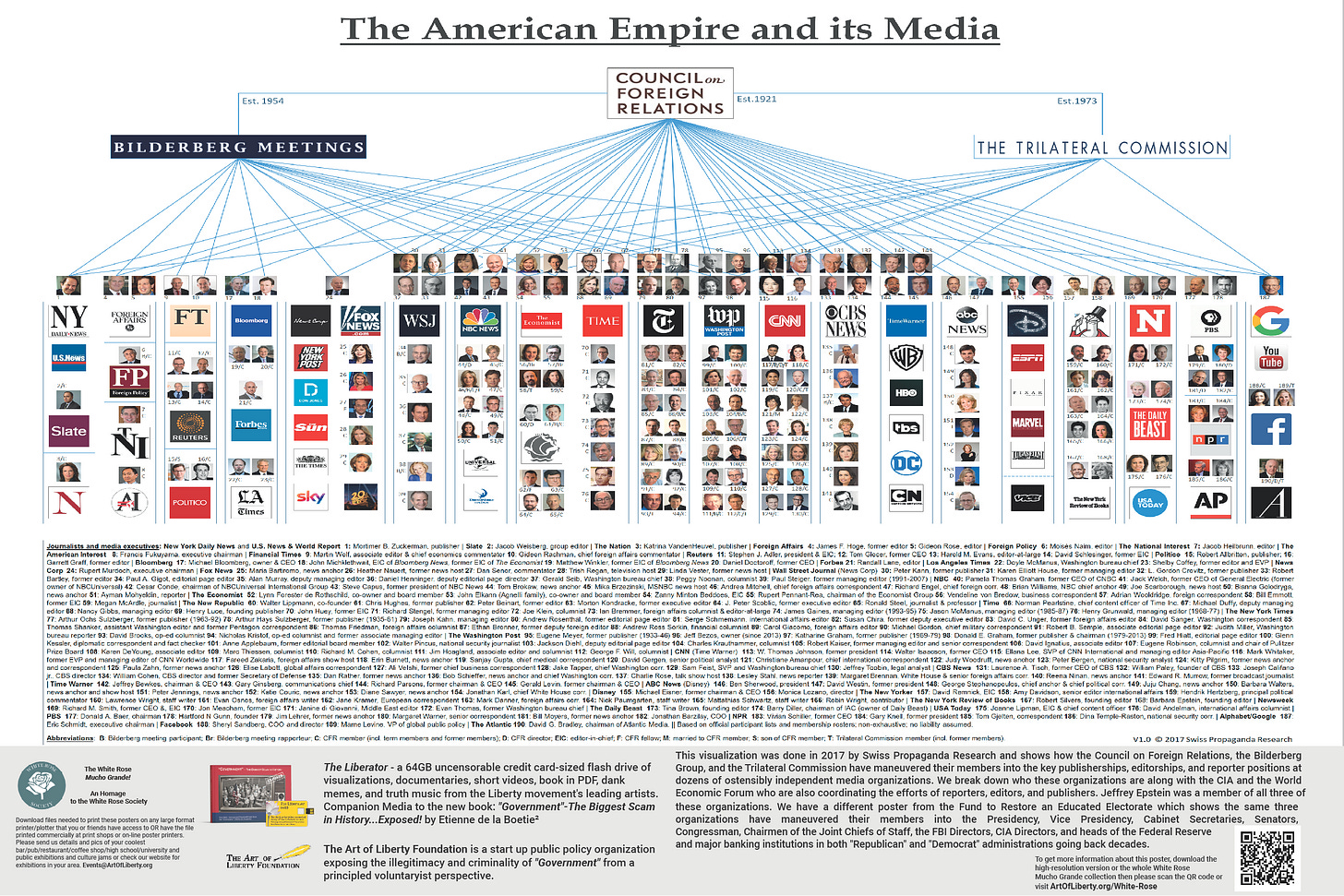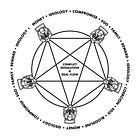
Preamble: What Linguistic Christianity Is (and Isn’t)
Linguistic Christianity is a dogma-free, structurally grounded analysis of the words and patterns presented in the witness gospels. It is neutral with respect to religious belief. Its framework does not require the reader to believe that Jesus of Nazareth was the Son of God, nor does it reject that belief. Instead, it begins with a simpler and more universally accessible claim: that the words attributed to Jesus — when read through the lens of Greek linguistics, epistemology, and dialogue structure — reveal a functional system for navigating truth.
This approach makes no theological assumptions. It does not debate metaphysics, salvation, or denominational authority. It asks only whether the content of Jesus’ speech, taken at face value, aligns with the structural logic of λόγος: proportion, clarity, inquiry, and alignment with reality. If it does, then its veracity does not depend on belief — it stands on the strength of its internal consistency.
Accepting this framework does not require abandoning faith or adopting any specific doctrine. More than one thing can be true at once. One can believe in the divinity of Christ while also recognizing that his method of speaking and reasoning offers a replicable model. Linguistic Christianity is not a replacement for faith — it is a tool for discerning how truth functions within speech, and how clarity is preserved or lost in translation, institutionalization, or distortion.
Thanks to my readers' generosity, all my articles are free to access. Independent journalism, however, requires time and investment. If you found value in this article or any others, please consider sharing or even becoming a paid subscriber, who benefits by joining the conversation in the comments. I want you to know that your support is always gratefully received and will never be forgotten. Please buy me a coffee or as many as you wish.
Introduction: Reclaiming Λόγος
Linguistic Christianity begins with a simple observation: the statement 'In the beginning was Λόγος' is not mystical or metaphorical — it is structurally true. If human beings did not possess the capacity to make distinctions through language, this sentence — and the act of reading it — would not be possible. “In the beginning was Λόγος.” This statement is not symbolic, metaphoric, mystical, or theological. It is a literal linguistic observation about the nature of reality. Everything that exists within the human experience — reason, communication, learning, decision-making, and even deception — is contingent upon λόγος functioning as the medium through which distinctions are made and meaning is conveyed.
This is the τέλος (telos) of λόγος (logos): the conscious, internal making of distinctions that align language with reality in the service of meaning. In classical Greek usage, τέλος (telos) refers to the end, fulfillment, or natural completion of a thing — not its afterlife, but its function as revealed in its activity. The τέλος of λόγος is not transcendent or metaphysical; it is practical, observable, and inherent in its action. It is the function λόγος performs when it is operating without distortion: it separates illusion from reality and reorients the speaker and listener toward truth.
Modern culture has buried this foundational principle under layers of abstraction, religious institutionalism, and semantic distortion. The result is a civilization unable to see that the very tools used to question the existence of truth are themselves predicated upon it. What the Gospel of John declared at the outset is not a theological thesis but a linguistic reality. Λόγος is not an axiom to be assumed — it is the structure that renders both assumption and proof intelligible.
Linguistic Christianity, as defined here, is the recovery and disciplined application of this principle. It does not require belief in a church doctrine, nor does it depend on theological traditions. It begins with the assertion that language, when aligned with observable reality and Natural Law, becomes the highest act of both cognition and moral integrity.
In this view, λόγος is not a noun.
It is not a static object.
It is a dynamic process of alignment.
It is the human mechanism for navigating between falsehood and truth, confusion and clarity, manipulation and freedom. It is not transcendent because it does not exist outside of human interaction; it is self-evident, observable, testable, and recursive.
To practice Linguistic Christianity is to submit oneself to the internal discipline of truth-seeking through speech, thought, and dialogue — to die to distorted language, resurrect clarity, and be reborn into alignment with reality.
This process is not mystical.
It is practical, structured, and methodical.
It is also political, cultural, and existential. Because when language is corrupted, everything built on it collapses.
This article outlines a comprehensive understanding of Linguistic Christianity, beginning with the Greek definition of λόγος and ending with its strategic application in a world defined by epistemological warfare. Each section expands on a different dimension of this practice, ultimately forming a complete and usable framework for those who refuse to live in lies.
The Meaning of Λόγος
To understand Linguistic Christianity, one must begin not with theology or doctrine but with philology. The Greek word λόγος is a working term with real utility in human cognition, dialogue, and judgment. Its usage in classical and koine Greek encompasses a broad spectrum of meanings, all of which point to one underlying activity: the articulation of structure in thought and speech.

The Liddell-Scott Greek-English Lexicon lists the following definitions for λόγος:
Computation, reckoning
Account, consideration
Relation, correspondence, proportion
Explanation, theory, argument
Law, rule of conduct
Formula, ratio
Grounding, reason
Inward debate, thinking, reasoning
Statement, narrative, oration, speech
Report, tradition, rumor
Discussion, deliberation, dialogue
Thing spoken of, subject matter
All of these are functions of distinction-making.
Λόγος is the linguistic and cognitive mechanism by which human beings separate signal from noise, truth from lie, alignment from contradiction. “Word” is a floating abstraction — λόγος is the principle that undergirds language when it is used in service of intelligibility.
Importantly, Λόγος is not limited to speech.
It includes inward discourse (inward debate), proportional reasoning (ratio), and the structural coherence of systems (law, formula). This means λόγος can be enacted in silence, can be applied to mathematics, and can be revealed in architecture, art, and even engineering. Wherever clarity, proportion, or conceptual integrity is present, λόγος is in operation.
In the context of the Gospels, the phrase “In the beginning was Λόγος” is often mistranslated as “the Word.” This is both linguistically incorrect and conceptually limiting.

The use of “Word” as a stand-in flattens the dynamic, recursive, and systemic implications of λόγος. It commits a nominalization — a linguistic transformation that turns a process, action, or quality into a static noun. In doing so, it freezes a living, flexible, and functional method of discernment into an inert label.
This not only distorts the meaning of the original Greek but also severs the connection between λόγος (logos) and its τέλος (telos): the continuous, active pursuit of alignment through distinction-making.
This author is not the first, and this is not the most comprehensive coverage of the misunderstanding of the word λόγος. I am indebted to the work of Catholic scholar and author E. Michael Jones and the work he presents in the excellent and well researched book, “Logos Rising.”
The error is not just academic — it has consequences.
The nominalization of λόγος to “word” (or Verbum in Latin) strips λόγος of its active function and replaces it with a mystical title. This shift is not semantic; it is hermeneutic.
Hermeneutics, the practice of interpretation, can serve many roles— translation, commentary, allegory, and moral framing — but when misapplied, it becomes a tool of abstraction and control. Rather than clarifying the meaning of λόγος, hermeneutics in this context cloaks it in a layer of symbolic meaning that detaches it from its linguistic precision and observable function.
It introduces a filter through which the original Greek meaning is no longer understood by non-Greeks, but reinterpreted in service of institutional needs or mystical agendas.
More dangerously, hermeneutics becomes a weapon in the application of epistemological warfare. By abstracting and recontextualizing λόγος beyond recognition, it erodes how the public’s come to verify and understand meaning directly. “How” is the “epi” in epistemological warfare.
It shifts the authority of interpretation from the speaker and the listener to an external priesthood of interpreters.
It creates dependency on intermediaries.
In such a framework, language ceases to be a tool of shared understanding and becomes a battlefield where meaning is shaped by power, not reason.
But if we return to the Greek, λόγος re-emerges as a practical process of alignment.
It is not what Jesus is called. It is what Jesus does.
He reasons.
He questions.
He reframes.
He challenges distortions.
He speaks with proportion and precision.
He uses parables as tests of reasoning.
Every encounter is an instance of λόγος being applied, sharpened, and made visible.
To recover λόγος, then, is to recover a forgotten discipline. It is to understand that speech is not ornamental. That language is not a tool for embellishment. That logos is the interface between perception and understanding. It is how the invisible becomes knowable. It is how human beings participate in truth.
Λόγος, fully grasped, is not the domain of mystics or scholars. It is the operating system of anyone committed to seeing clearly and speaking truly. It is the most democratic and universal tool humans have. And it is the first thing that tyrants seek to distort.
Jesus as Λόγος Incarnate
If λόγος is the process by which structure is brought to thought, and truth is revealed through language, then Jesus, as “Λόγος Incarnate,” is the embodied pattern of that function. The Gospels do not present λόγος as a third-person concept Jesus discusses; they present Jesus himself as the λόγος in action.
This is not metaphor.
This is a structural, linguistic statement about his role.
When Jesus speaks, he does not simply proclaim.
He questions.
He listens.
He reframes.
He challenges.
He answers with proportion, precision, and parable — not to obscure but to expose the assumptions embedded in the listener’s worldview.
Each encounter with Jesus in the New Testament is a demonstration of linguistic integrity.
His words cut through ambiguity and disarm sophistry.
He does not manipulate; he clarifies.
He does not perform magic; he dissolves confusion.
In this case, the Incarnation of Λόγος, is the embodiment of a fully aligned linguistic process within a person. Jesus is Λόγος because he applies λόγος. He lives it, teaches it, and uses it to confront power, heal division, and call people to inward clarity. His speech is never ornamental. It is diagnostic. It is surgical. It is reality-forming.
When Jesus says “I am the way, the truth, and the life” (John 14:6), it is a statement of internal consistency. If λόγος leads to alignment with Natural Law, and Jesus speaks without distortion, then he is the way, because he walks it. He is the truth, because his language does not deviate. He is the life, because clarity and alignment restore vitality.
His parables function as open-code logic puzzles, linguistic matrices designed to test the hearer’s alignment.
Do they hear selectively?
Do they project distortion?
Do they inquire further?
The parable separates the casual listener from the one committed to truth. This is not esotericism. It is structural rigor.
It is λόγος made visible.
The passion narrative — his trial, execution, and resurrection — can be read structurally: as a confrontation between manipulated narrative (false witnesses, mob mentality, loaded questions) and linguistic integrity.
Jesus does not self-defend with distortion.
He does not retaliate with rhetoric.
He remains aligned.
To see Jesus as λόγος incarnate is to understand him not as a token of divinity, but as the pure expression of language that refuses to lie. Yet even this phrase — 'Λόγος incarnate'— invites a nominalization.
By becoming 'incarnate,' Λόγος takes on a human form, which, in linguistic terms, renders a dynamic process into a bounded identity.
His 'humanity' becomes a kind of linguistic constraint — a nominal state — that, like all nouns, must be transcended for movement to resume. Thus, his death becomes a necessary step not only in salvific narrative but in linguistic logic: the process must destroy the container that freezes it in order to continue operating. The resurrection is not just spiritual triumph; it is Λόγος released from nominalization, restored to motion, and returned to function.
Linguistic Tools of Truth vs. Tools of Deception
If λόγος is the internal mechanism by which we move toward clarity and alignment, then certain linguistic patterns are naturally aligned with it — while others serve to obscure, manipulate, or derail that process. In a world defined by epistemological struggle, perpetrated by oligarchy, the battlefield is not only in what is said but in how it is said. Structure reveals intent.
Tools of Truth (Aligned with Λόγος):
These are the forms and functions of speech that maintain transparency, proportionality, and grounding in observable reality:
Explanation – A coherent unfolding of context that invites verification.
Dialogue – Mutual inquiry that preserves the agency of each participant.
Ratio / Proportion – Statements that reflect balance, symmetry, or internal consistency.
Inward Debate – Reflection that tests assumptions before they become assertions.
Definition – The act of setting clear boundaries and meanings to avoid ambiguity.
Questions – Especially open-ended ones that surface presuppositions or missing data.
Each of these forms honors the τέλος of λόγος by fostering shared understanding and reality-based cognition. They do not demand belief — they invite inspection. They do not obscure — they reveal.
Tools of Deception (Antithetical to Λόγος):
These are some of the most common patterns that undermine clarity, bypass logic, and create artificial authority through linguistic trickery:
Nominalization – Turning processes into things. A striking example is the use of the word Noema, the name of Nicolas Berggruen's publication. Derived from Greek, where it means "that which is thought," the word nominalizes the process of thinking itself. It presents thought not as an active, critical engagement but as a static product — a packaged, publishable object. This framing enables institutions to present curated narratives as the product of deep reflection while bypassing the actual dialectical or truth-seeking process. The result is a branded semblance of λόγος, stripped of its τέλος.
Cause-effect Complex Equivalences – Asserting unjustified relationships. Example: “Silence is violence.” Another: “If you don’t get the jab, you’ll kill grandma.” These statements insert causal urgency without grounding in proportional data or verifiable logic.
Double-Binds – Structuring language to trap the subject in a no-win choice. Example: “Vote for the lesser of two evils.” Another: “Take the jab, or lose your job.” These setups are designed to force a concession regardless of response.
Presuppositions – Sneaking unverified claims into questions. Example: “If you voted for X, you must be Y” Another: “If you drive a Tesla, you must be a Nazi” These constructions embed accusations without requiring proof.
Loaded Language – Using emotionally charged or vague terms that short-circuit rational evaluation. Example: “extremist,” “denier,” “unhinged.” Additional examples include “science-based,” “irresponsible,” “anti-democratic.” Such terms function as pre-loaded verdicts, not descriptions.
Universal Quantifiers – Phrases like “always,” “never,” or “everyone knows” that signal overgeneralization. Example: “You always do this,” or “Nobody believes that anymore.” These flatten nuance and erase exceptions to bolster control through exaggeration.
Each of these forms mimics reasoning without enacting it. They violate the structural integrity of λόγος. They bypass the process and substitute social pressure, fear, confusion, or guilt. These are the fingerprints of ψεῦδος (the lie), διάβολος (the accuser), and σοφισμα (sophism).
Recognizing these devices is a survival tactic in an information war. These language patterns train populations to distrust their own reasoning and defer to managed authority. That is the essence of epistemological warfare command and control.
To apply λόγος is to detect and reject these mechanisms wherever they appear, especially in one’s own habits of thought.
Self-examination is the first layer of resistance.
Dialogue is the second.
Precision is the third.
Linguistic Christianity makes no room for lies dressed in clever syntax. It begins by naming the structure of deception so that freedom, which depends on clarity, can be restored.
The Internal Paschal Process
Linguistic Christianity reframes the Paschal Mystery — traditionally understood as the death, resurrection, and rebirth of Jesus — as a recursive, internal process of epistemological purification. Some may presume this is a symbolic gloss or theological metaphor, but in a linguistic frame, it is a cognitive pattern that mirrors the arc of human transformation when λόγος is fully engaged.
In simpler terms, this means that what Christianity historically described in mysterious or sacred terms — Jesus dying and rising again — also maps directly onto what happens in the mind when a person abandons a false belief, experiences a deeper clarity, and begins to live in a new way. The death is the letting go of illusion or old idea. The resurrection is a realignment of context. The rebirth is living in that truth, consciously, through language and action. When someone lets go of false ideas, thinks clearly, and speaks truthfully, they change from the inside out. They experience “Christ.” That's what Jesus modeled — and taught his followers how to do.
The Christian mystery is a tactical structure — an internal process of transformation rooted in the discipline of perception management.
Death: The Collapse of a False Frame
The first stage — death — occurs when an existing belief, framework, or assumption is exposed as false or insufficient. This collapse is painful because it requires letting go of the familiar, the inherited, or the convenient. Linguistically, this death is precipitated by contradiction: a failure of coherence, cognitive dissonance, an internal inconsistency, or an encounter with a clearer articulation of truth. The individual realizes that their map no longer matches the territory.
This death is not rhetorical.
It is internal and structural.
It is the moment when a nominalized belief (“freedom,” “liberty,” “democracy,” “justice,” “science”) is interrogated and found to be detached from its functional meaning.
It is λόγος acting as a scythe — cutting away distortion by revealing misalignment.
Resurrection: Re-grounding in Structural Integrity
Resurrection follows not as magic, but as a return to structure.
The mind, once cleared of distortion, begins to reassemble its frame of reference around what holds up under scrutiny. This is not merely adopting a new belief — it is discovering a deeper level of alignment. In Christological terms, this may be interpreted as “the holy spirit.”
In simpler terms, this means that what Christianity historically described in mysterious or sacred terms — Jesus dying and rising again — also linguistically maps directly onto what happens in the mind when a person abandons a false belief.
In linguistic terms, resurrection is the recovery of definition, proportion, and explanatory power. Ideas that were previously hollow are now rebuilt on observable grounding. This is the moment of recognition, the return of coherence, and the realignment of language with truth. It is also the reanimation of agency: the speaker is no longer repeating inherited scripts but participating in active truth-making through the process of λόγος.
Rebirth: A New Identity in Alignment
This internal paschal process is not a one-time experience but a pattern available in every act of reflection, every meaningful conversation, every choice to seek clarity over conformity.
It is in this stage of rebirth that the linguistic foundation of the term Christ (Greek: Χριστός) becomes relevant — not the divine title, but a designation of function. Χριστός means “anointed one,” derived from the verb χρίω (chriō), meaning “to anoint, to rub with oil.” The word does not imply mysticism or transcendence. It implies designation. In the classical Greek sense, one becomes a Christós not through divine election but by fulfilling a particular role through observable action.
Seen through the lens of λόγος, then, The Christ is not a static identity but the linguistic outcome of the Paschal process. The Christ is what emerges when λόγος, having died to distortion and risen through structural coherence, is fully integrated into human speech, action, and thought. It is not a person; it is the name given to that alignment when it becomes functionally embodied.
Thus, the process does not confer a new identity; it activates a pattern of responsiveness. It does not sanctify; it sharpens awareness. A human who moves through the Paschal cycle with λόγος intact becomes capable of clarity — not once, but whenever they choose alignment over illusion, becoming reanointed with ‘Christ’ in reflection, in conversation, and in every act of perception.
Linguistic Christianity teaches that death, resurrection, and rebirth are not merely events in a sacred story — they are the operating logic of transformation. This is how the mind renews itself. This is how civilizations sustain clarity. It is also how resistance is structured: not through slogans or sentiment, but through the disciplined practice of λόγος.
To follow Jesus as Λόγος is to enter this cycle willingly. To let go of inherited distortions. To pass through the terror of truth. To rise into a clearer articulation of reality. And to speak in such a way that others might do the same.
The Hegelian Hijack
The internal Paschal process — death, resurrection, rebirth — is rooted in individual agency and linguistic clarity.
It cannot be outsourced.
It cannot be simulated.
And yet, modern systems of control have developed mechanisms to mimic it, weaponize it, and redirect its energy. This counterfeit process is best understood through the lens of dialectical manipulation, commonly associated with G.W.F. Hegel.
Thesis–Antithesis–Synthesis as Counterfeit Transformation
“Hegel’s” dialectic — thesis, antithesis, synthesis — is often praised as a model of progress through contradiction. However, this triadic structure was first articulated by Johann Gottlieb Fichte, not Hegel, though it became popularly associated with Hegel’s philosophy over time. It is also echoed in the widely-used manipulation framework: problem, reaction, solution.
Here the internal Paschal logic of contradiction is externalized and abstracted. Instead of contradiction emerging within the individual's speech, thought, or moral judgment, the dialectical model externally imposes contradiction from without. The subject becomes passive — a recipient (or victim) of conflict rather than a participant in meaning.
But unlike the internal Paschal process, which resolves contradiction through structural realignment and epistemological clarity, the dialectical model manufactures conflict externally in order to guide perception toward a predetermined synthesis.
It simulates growth through an orchestrated manufactured process.
The structure looks similar:
Thesis = an existing order or belief
Antithesis = a reaction or opposition to it
Synthesis = a resolution that reconciles the two (but often at a cost)
However, this synthesis does not necessitate truth or alignment with Natural Law as an outcome.
It aligns with control and is the primary weapon in epistemological warfare and PsyOps.
The Hegelian dialectic absorbs contradiction and neutralizes resistance in environments where populations do not, will not, or can not apply their λόγος abilities.
Λόγος requires a grounding in reality. The dialectic manages human perception and belief through manufactured instability and ambiguity.
Problem–Reaction–Solution: Applied Dialectics
An example of this dialectical manipulation in action may have impacted this author directly in January 2025, when a wave of fires devastated Los Angeles and the Pacific Palisades.

Fires that the Los Angeles Fire Department did not fight. These fires appear to be instrumentalized as engineered 'problems' to justify radical 'solutions.'
Example: Mitigating metadata suggest that AI-based systems like the World Economic Forum sponsored FireAId and backfire drone systems, marketed as wildfire prevention tools, could have just as easily been utilized to selectively devastate high-value areas.
The pattern follows the Hegelian script:
Problem: A sudden outbreak of uncontrollable fires, with suspicious origins and highly selective damage paths, particularly sparing elite properties while incinerating middle-class zones.
Reaction: Media coverage flooded the public with panic and urgency, blaming the fires on 'climate change' and emphasizing government inefficiency.
Solution: Immediate calls for centralized control, championed by the Berggruen Institute, whose affiliates proposed a technocratic restructuring of Los Angeles governance. Figures like Steve Soboroff were installed to oversee 'recovery,' while narratives from publications like Noema framed the destruction as evidence of fragmented authority, setting up the pretext for a new centralized urban order.
This is not “recovery” — it is synthesis.
The original civil framework was destroyed, the population disoriented, and the pre-packaged 'solution' offered as salvation. A textbook Phoenix Program operation dressed in the robes of climate reform.

This is the mechanics of propaganda. It externalizes a Paschal arc as chaos, catharsis, renewal (LA Strong!) — but devoid of truth. The self is not refined; it is confused, disoriented and redirected. The language is not clarified; it is replaced. The public is not awakened; it is conditioned.
How the Hijack Undermines λόγος
In the Hegelian hijack, language becomes performative rather than explanatory. The purpose of speech is no longer to uncover reality but to manage appearances.
Debates are staged.
Contradictions are tolerated.
Even rebellion is scripted.
Knowing replaces thinking.
Narratives replace reasoning.
The individual is expected to conform to an already-defined meaning rather than engage in the dynamic process of λόγος. Language ceases to be a path toward truth and becomes a ritual of obedience.
This process trains people to think in binaries — Republicans vs. Democrats, Conservatives vs. Liberals, Communists vs. Capitalists, left vs. right, science vs. superstition, safety vs. freedom, Eagles vs. Patriots — while the synthesis quietly reconfigures the system beneath them. It is not progress. It is epistemological sleight-of-hand.
More dangerously, it teaches the mind to outsource conflict resolution. Rather than confronting contradiction internally (through reflection, dialogue, and definition), the subject is taught to wait for a system, expert, or institution to resolve the tension on their behalf. This dissolves agency.
The Counterfeit Resurrection
What the Hegelian dialectic produces is not rebirth but co-optation. It gives the appearance of transformation without the death of falsehood. It preserves the language of awakening but hollows it out. It creates an anti-Christ — a structure that does not merely reject λόγος, but replaces it with a counterfeit that mimics its form while nullifying its function.
This is how regimes change their image without changing their function. It is how ideologies reinvent themselves without revisiting their premises. It is how lies evolve faster than truth. It is also how λόγος is erased, not by censorship alone, but by substitution.
To resist the Hegelian hijack is to reassert the primacy of internal contradiction and structural integrity.
It is to say:
I will not be synthesized.
I will not be solved.
I will pass through the contradiction myself.
I will die to the distortion and rise by reason.
That is the Paschal process. That is λόγος.
Rome Never Died
To understand the full scope of linguistic distortion, one must understand the continuity of Empire — not as geography, but as structure. The fall of Rome is a popular myth. In truth, Rome never died. It adapted, rebranded, and migrated its functions through the Church, through finance, through commerce, through law, and ultimately into the administrative machinery of modern globalism.

Rome is not a place. It is a system of hierarchical control maintained by institutional language. Titles, doctrines, contracts, and decrees — these are not just bureaucratic artifacts. They are linguistic mechanisms for consolidating authority and disguising it as order. Where λόγος invites scrutiny, Rome demands obedience. The word “Liberty” is a Roman invention meaning freedom allotted to you by Rome.
The structure of empire survives by freezing language. Instead of dynamic reasoning, it offers dogma. Instead of proportion, it demands hierarchy. Instead of dialogue, it enforces protocol. Every imperial order, whether dressed in togas, cassocks, suits,or MAGA hats, depends on controlling how language is used — and more importantly, how it is not used.
This is why the enemy of the Empire is not revolution but clarity. Tyrants fear words that reveal structure. They fear definitions that cut through euphemism. They fear questions that dismantle their double-binds. The greatest threat to any totalizing system is not violence, but λόγος.
Modern technocracy inherits the same architecture. The European Union, the United Nations, the World Economic Forum, the Davos class, and institutional NGOs are Rome re-scripted. Their power flows through narrative, branding, and the silent enforcement of approved terminology. They no longer just build coliseums — they build consensus. And that consensus is manufactured through tightly managed language.
Linguistic Christianity recognizes that freedom is not just political — it is epistemological. To speak freely is not merely to be unpunished, but to be structurally clear. To reclaim λόγος is to expose empire — not with slogans, but with precision.
Rome never died. It evolved into your media, your curriculum, your contracts, your apps. It speaks in compliance forms and policy papers. It tells you that clarity is extremism and that obedience is progress. It has turned hermeneutics into a priesthood and dialectics into a trap.
The way out is not rebellion, but revelation.
Not mysticism, but mechanics.
Not belief, but λόγος.
Rome’s modern descendants are not hidden behind palaces — they operate think tanks and foundations. The Berggruen Institute, headquartered in Los Angeles, Peking, and Venice, is one such node in this neo-Venetian web.
Under the guise of intellectual sophistication and global governance, its agenda mirrors the strategies of the Venetian oligarchy: epistemological warfare, symbolic rituals, strategic manipulation of crises, and tightly controlled language. The revival of this Venetian logic — seen in institutions like the Club of Rome, the Cini Foundation, and the World Economic Forum — demonstrates that the lineage of oligarchical epistemology has never been broken.
Webster Tarpley’s work on Venice identifies these structural continuities. Venice was not merely a maritime power — it was an intelligence empire. It deployed controlled opposition, fomented ideological division, and mastered the art of governing perception. Its oligarchs perfected the dialectic not as a philosophical method, but as a geopolitical weapon. They didn’t just control trade routes; they controlled meaning. By suppressing Renaissance humanism and Platonic philosophy through proxy wars and propaganda, Venice laid the groundwork for our modern condition: managed thought masquerading as free inquiry.
Note: Michael A. Hoffman’s work on Secret Societies and Psychological Warfare, Twilight Language, and The Occult Renaissance Church of Rome, also fills in many gaps in the epistemological picture.
That structure was never dismantled. It was adopted, refined, and globalized. Like a spider shedding its carapace, the underlying oligarchy molts one imperial form after another, preserving its inner logic while discarding obsolete skins. The Republic gives way to the Empire, the Empire to the Church, the Church to the Corporation, the Corporation to the Central Bank, the Central Bank to the Algorithm — but the spider remains.
Each shell is linguistically marked: the edict, the bull, the charter, the executive order, the terms of service, the End-User License Agreement. Empire changes wardrobe but not anatomy. Its goal is unchanged: control perception by controlling the medium of distinction itself — language.

That control is most visible in the architecture of modern finance. From the City of London and Wall Street to the Bank for International Settlements, the Federal Reserve Bank, and dynastic financial houses like the Rothschilds and Rockefellers, the mechanisms of empire are no longer geographic — they are fiscal, algorithmic, and symbolic. Institutions are front-facing masks; networks of wealth and ideology are the hidden structure.
These systems operate using the logic of MICE+F: Money, Ideology, Coercion (or Compromise), Ego (or Energy), and Family — whether defined by bloodline or secret society. This framework captures the full spectrum of influence, from explicit incentives to hidden leverage. Each point of control is a pressure point on the soul: what you want, what you believe, what you fear, what flatters you, and who you are tied to.
The symbol of this architecture is the star within the circle — a five-pointed mechanism of containment. It is not accidental. It is a glyph of convergence: all power drawn to the center, all variation absorbed into symmetry, all difference neutralized by form. The circle represents enclosure; the star, hierarchy within. Together they express the perfected system of soft totalitarianism: order without clarity, structure without λόγος.
This architecture reflects what some have identified as the command-and-control pyramid behind global governance — described in "The Power Structure of the World." At its peak sits a hidden oligarchy composed of banking dynasties, bloodline families, and transnational financiers. Below it, layers of enforcement and coordination: central banks, intelligence networks, energy cartels, pharmaceutical giants, cultural media, and digital surveillance infrastructure. The spider does not rule through edicts — it rules through platforms. Its agents don’t wear crowns — they wear ball caps and write white papers.
At each level of the pyramid, the role of language is the same: to obscure, redirect, or simulate meaning. Whether through legalese, policy directives, or predictive behavioral frameworks, the purpose is to maintain coherence without comprehension. To enforce consensus without communication. To speak in the name of truth while severing the audience from their capacity to discern it. Its methods are visible in today’s intellectual monocultures, technocratic planning bodies, and predictive policy frameworks.
Rome and Venice never died — Venice is Rome with a better propaganda department.
The Original Cultural Operating System
Λόγος is not a theory, abstraction, or academic model. It is our native operating system — the original process by which human beings encounter, interpret, and communicate reality. It is embedded in the curiosity of every child who asks 'why?'. It is the natural, spontaneous activity of distinction-making and pattern-seeking through language. Before culture, before doctrine, before distortion — there is λόγος.
This is why Jesus said, “Unless you become like little children, you will not enter the kingdom.”1 Children speak without pretense. They ask questions without agenda. They seek alignment before conformity. To become like a child is not a call to innocence but to linguistic renewal — to return to the organic structure of inquiry and truth-seeking that empire systematically trains out of us.
The systems we inhabit are not merely misaligned — they are designed to override this native programming. Schools, media, and ideology all serve to replace λόγος with scripts. In place of curiosity, they install compliance. In place of discernment, consensus. In place of speech, branding.
The Beatitudes themselves are a map of this native operating system:
Blessed are the poor in spirit2 – because they have made space for meaning. They are not full of noise.
Blessed are those who mourn3 – because they recognize the cost of clarity in a world that punishes truth.
Blessed are the meek4 – because they listen. They are attuned, not reactive.
Blessed are those who hunger and thirst for righteousness5 – because they pursue alignment, not authority.
Blessed are the merciful6 – because they break the cycle of retaliation with proportionality.
Blessed are the pure in heart7 – because their signal is clean; they do not project distortion.
Blessed are the peacemakers8 – because they resolve contradiction without concealment.
Blessed are those persecuted for righteousness9 – because they remain aligned even when it costs them.
These are not religious virtues — they are the behavioral expressions of λόγος.
They are not metaphors.
They are instructions.
They describe what it looks like to live, speak, and relate in alignment with the operating system we were born with.
The way forward is not innovation — it is restoration.
To rebuild culture on λόγος is to strip away the false knowledge we have been saddled with and recover the original architecture of clarity. Not to invent new language, but to respond through language with precision and integrity.
Not to worship speech, but to take responsibility for it — to consciously use language in a way that reflects understanding, proportion, and clarity. Responsibility means regaining our capacity to respond to reality rather than react to programming.
Λόγος is the process through which clarity, agency, and alignment are enacted. A society grounded in λόγος does not require a novel operating system — it must restore the one we were born with. This means unlearning the Empire’s scripts and returning to our native linguistic structure — one rooted in questioning, coherence, and the courage to speak precisely.
Such a culture cannot be built through policy, law, or belief. It must emerge through practice — through speech patterns, habits of mind, and the active rejection of deception in all its forms. It must treat language not as ornament or persuasion, but as infrastructure: the structural foundation upon which all reasoning, relating, and rebuilding takes place.
This is what it means to be meek — not submissive, but attuned.
The meek shall inherit the earth because they are listening.
They are not competing to speak first, but waiting to speak rightly. They are reclaiming the native capacity for active listening — the soil in which λόγος takes root and becomes action.
The Final Distinction
Linguistic Christianity does not offer a belief system — it exposes a fault line on a spectrum of belief.
On one pole is λόγος: the process of alignment, inquiry, proportion, and clarity.
On the other is anti-λόγος: the machinery of distortion, substitution, and obedience.
These are not different worldviews.
They are different operating systems.
One builds and creates culture.
The other manufactures control.
To follow Jesus is not to join a tribe — it is to pick up the cross of structural integrity. To undergo the internal Paschal process again and again: to die to false maps, to rise in clarity, to live in alignment.
To speak with surgical precision in a time of weaponized ambiguity.
To call things by their names when the world demands euphemism. To protect coherence when Empire thrives on contradiction.
The final distinction is not between ideologies, identities, or institutions — It is between those who use language to clarify, and those who use it to conceal.
This is the real battle. And it runs through every conversation, every headline, every classroom, every courtroom, every sermon, and every silence.
The Kingdom is not a place.
It is a disciplined pattern of speech.
It begins with the application of λόγος.
What began as a linguistic observation has revealed itself as the central battlefield of our time. The war is not over land or ideology, but over the structure of meaning itself.
In a world defined by epistemological warfare, Λόγος is not retreat — it is resistance. It is not doctrine — it is defense.
At this point, our lives — and the future of humanity — depend on that recognition, by all of us.
We are born with λόγος.
Every child understands it before it is educated out of them — because children speak from presence, not performance. They name what they see without the fear of approval or exclusion. This is why Jesus places the child in the center: not to romanticize innocence, but to highlight the discipline of undistorted perception. That is the Kingdom. That is the pattern. And it begins not with belief, but with speech aligned to truth.
“At that time the disciples came to Jesus, saying, ‘Who is the greatest in the kingdom of heaven?’ And calling to him a child, he put him in the midst of them and said, ‘Truly, I say to you, unless you turn and become like children, you will never enter the kingdom of heaven. Whoever humbles himself like this child is the greatest in the kingdom of heaven.’”
— Matthew 18:1–4
Bibliography
This article incorporates insights, frameworks, and examples drawn from the following sources, each of which explores key aspects of linguistic, political, or epistemological control:
The Empire that Never Fell – on the continuity of oligarchical power structures from Venice to modern technocracies.
The Power Structure of the World – describing the command-and-control hierarchy behind global governance.
The Star Within the Circle – on symbolic control systems and the convergence of ideological, financial, and familial power.
How Globalist Arsonists Have Used Fire to Seize Control of Los Angeles – illustrating real-world applications of dialectical strategy under the guise of crisis management.
Palisades Firestorm: How AI and Corruption Are Burning California to Ashes – detailing AI-driven mechanisms for engineered destabilization.
The Sermon on the Mount – interpreted through the lens of λόγος as an actionable operating system of inquiry, clarity, and proportion.
Matthew 18:3 https://biblehub.com/matthew/18-3.htm
Matthew 5:3 https://biblehub.com/matthew/5-3.htm
Matthew 5:4 https://biblehub.com/matthew/5-4.htm
Matthew 5:5 https://biblehub.com/matthew/5-5.htm
Matthew 5:6 https://biblehub.com/matthew/5-6.htm
Matthew 5:7 https://biblehub.com/matthew/5-7.htm
Matthew 5:8 https://biblehub.com/matthew/5-8.htm
Matthew 5:9 https://biblehub.com/matthew/5-9.htm
Matthew 5:10 https://biblehub.com/matthew/5-10.htm













Outstanding, great article and very helpful in my struggle with the veracity or no of JC, thank you.
For a while I have thought that you were going to apply the same type of argument to the sermon on the mount as you did with the protocols of Zion. Let’s not get down in the weeds as to its provenance but take what it says on face value…because ultimately it makes sense.
It’s a really good article. Do your own thinking, don’t subcontract it to someone else. Recognise when you are wrong or unsure. I always remember a fantastic jazz music tutor whose mantra was “mistakes are cool”.
There is a bible quotation from the Gospel of John 8:59 which seems apt in this context. “But Jesus, going through the midst of them, passed by”. Incognito, humble. Avoid the crowd.